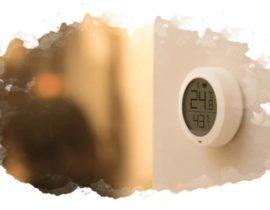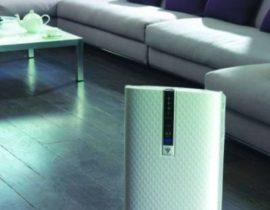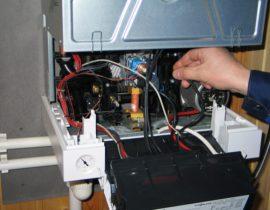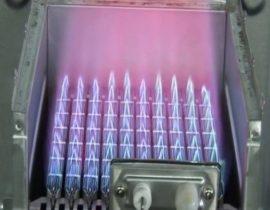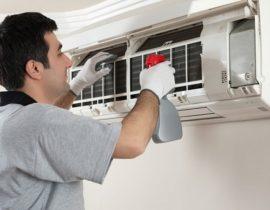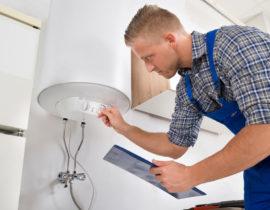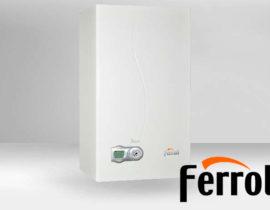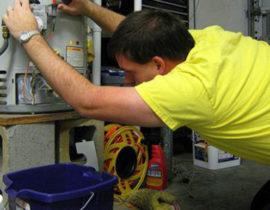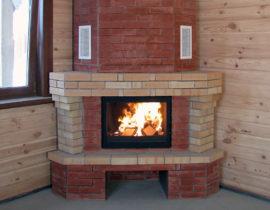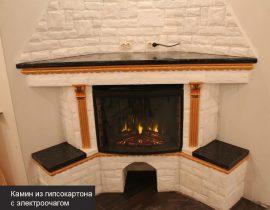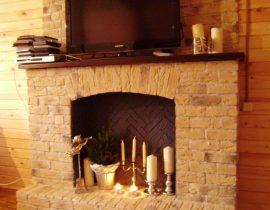The air conditioner normally works quite silently. If the operation begins to be accompanied by sounds, this is a reason to seek diagnostics and maintenance of the device. Most often Problems occur after many years of active use. But there are also much earlier cases.
Content
What sounds should alert
A properly working air conditioner sounds no louder than a calm human conversation and the movement of a mechanical clock. In numbers, the indicator is 30-40 dBa. This fits into the norms established by law for household appliances.
In the daytime (from 7 a.m. to 11 p.m.), the noise penetrating through the walls of residential premises should not exceed 55 dBa. In the evening (from 11 p.m. to 7 a.m.), the level is even lower - up to 45 dBa.
The output of the sound volume beyond the sanitary boundaries causes a lot of inconvenience to the residents of the apartment and the surrounding neighbors. In some cases, deviations from the norms can be harmful to health.
In the case of air conditioners, signs of problems can be:
- perceptible excess of volume (in comparison with voices and according to indications of special instruments);
- periodic ringing;
- crackling;
- vibrations of the device and the wall on which the installation is made;
- whistling;
- hum.
In addition to these, there are other atypical "voices" of the climate system.None of them can be left without attention, in order to avoid serious damage.
Causes of noise
Breakdowns occur in the indoor or outdoor unit. In the first case, the problem will be of a structural nature, in the second, the engine is more likely to be “sick”.
Damage to the outdoor unit
Structural problems are characterized by vibration, increased volume in the operation of the blades, crackling and grinding.
Next, you need to check the following items:
- blades. Accumulation of dirt, ice, chips and cracks visible without disassembly, large debris (leaves, cobwebs, poplar fluff, sticks) that have fallen - all this interferes with proper operation;
- frame. Dents, chips can indicate the fall of icicles, heavy objects from the windows of neighbors and from the roof, intentional blows. Deformation leads to internal damage from a violation of the distribution of heat loads;
- bolts and springs. Loosened fasteners can cause significant vibration. A spring that is too long also creates oscillation problems at start-up. The fixation of the protective grid should also be checked;
- vibration isolation. If its fasteners are dry, the noise level increases significantly;
- compressor crankcase. A low oil level in the refrigeration circuit and its mechanical damage lead to a hum.
Such reasons are most often the result of an incorrect choice of the installation site of the air conditioner or incorrect attachment to the wall, there are cases of sabotage from other residents of the house, birds and animals (especially when the equipment is at the levels of the lower floors).
Light crackling in the vast majority of cases does not have a serious underlying reason. it is caused by the contraction and expansion of a material due to temperature changes. This is especially true for plastic elements.
Breakdown of the indoor unit
Internal engine problems are usually accompanied by a hum and other sounds at low frequencies. There are also vibrations, tapping, an increase in the overall volume.
In such cases, the following are subject to verification:
- compressor and transformer. The service life of the elements is on average 15 years, but it happens that it fails much earlier, especially if the device was installed with violations of technology;
- impeller motor, bearings. Cracks, lack of lubrication, deformation, imbalance can cause sounds up to a roar;
- drainage pump. Noisy with pollution and critical wear;
- freon pipes. Special attention should be paid to the pipes transporting the refrigerant. Creases and narrowing, depressurization, clogging may be accompanied by leaks, as a result, characteristic hisses when the device is turned on and off. The reason often lies in the poor-quality assembly of the manufacturer.
The most telling sound is also gurgling and the effect of pouring liquid. It indicates a defrosting of the heat exchanger or an imminent complete shutdown of the equipment.
Troubleshooting
Without the appropriate education and experience, it will be possible to eliminate the causes of noise on your own in a minimum of cases.
If you have an understanding of the basics of the functioning of the equipment and the appropriate tools, you can work in the following areas:
- replace / correct the impeller in case of damage and imbalance;
- remove ice and dirt from the fan with a brush and detergent;
- tighten the fasteners with a screwdriver, shorten the support spring;
- additionally screw the grate onto freshly drilled holes near standard fasteners;
- remove and rinse the filters with running water;
- refuel oil;
- flush the external radiator;
- remount the entire block in the correct way;
- replace worn gaskets-vibration dampers;
- replace the screws on the mounts and tighten them with rubber seals;
- seal small cracks on the blades and body;
- put thermal insulation on the tubes inside the structure, if absent, strengthen the existing one with clamps.
If a split system is installed without special winter protection, and the noise occurs during the cold season, you should immediately stop using the device. Standard models are rated up to -7C. For more severe conditions, it will be necessary to replace the equipment with another one with a special modification to -30C.
Determine the source of the problem with certainty and remedy only a person with relevant knowledge can. In case of difficulties with diagnostics, it is preferable to immediately call the master, leaving the air conditioner a chance to be resuscitated. Self-analysis of equipment without skills always carries the risk of breaking a node.
FAQ
Most likely, the problem is the leakage of freon or its absence. Only a specialist can determine for sure.
Working with freon is very difficult. It is worth taking on it only with full confidence in one's abilities or with an understanding of the risk and responsibility for possible damage to the air conditioner. In addition, you will need a professional gauge manifold.
Necessarily. Any inspection and intervention begins with the power off of the equipment.
Quite. Normally, the slope of the block does not exceed 5 degrees. If you have more, try adjusting the body position and see how the sound changes.
Once every 2-3 weeks in a dirty room and once every 2-3 months with regular cleaning and maintenance.
Video tips for eliminating noise in the air conditioner


